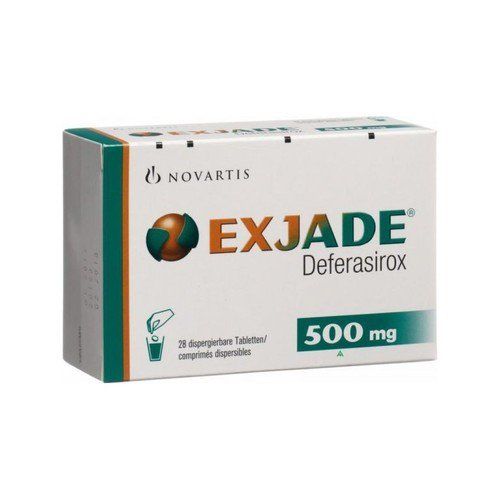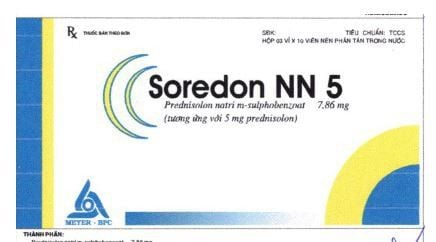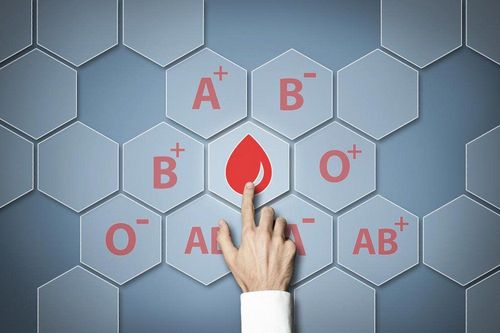This is an automatically translated article.
The article is professionally consulted by Specialist Doctor II Le Thanh Cam - Pediatrician - Pediatrics - Neonatology - Vinmec Danang International General HospitalMaternal blood group incompatibility can cause hemolytic anemia, leading to jaundice in newborns. Mother-child blood group incompatibility includes ABO blood group incompatibility and Rh incompatibility.
1. What is mother-child blood group incompatibility?
Maternal blood group incompatibility is a condition in which the blood types between the mother and the child are incompatible, causing hemolytic anemia and leading to neonatal jaundice. Mother-child blood group incompatibility includes: blood group incompatibility of ABO system, Rh system and some other subgroups.
ABO blood group incompatibility: ABO blood group incompatibility is common when the mother has blood group O but the baby has blood group other than O (can be A or B). ABO blood group incompatibility has a rate in the range of 10-15%. Rh incompatibility: Rh incompatibility occurs when the mother has Rh(-) blood group but the child has Rh(+) blood group.
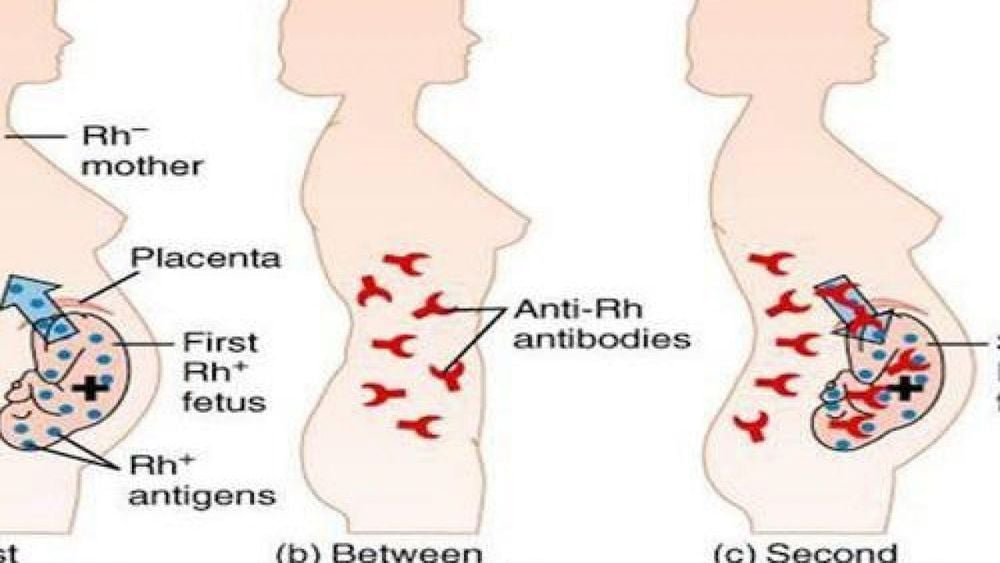
2. Is mother-child blood group incompatibility dangerous?
When ABO blood group incompatibility occurs, the co-antibody in the dominant mother's blood group O can cross the placenta and cause hemolysis in utero.
When there is a case of Rh blood group incompatibility, for the first time in pregnancy, most babies are born healthy and normal because at this time the Rh blood group incompatibility has not yet affected. However, when the mother's blood comes in contact with the baby's blood during labor, the production of antibodies against the Rh factor begins. Or during pregnancy, if the mother has an injury, bleeding in the abdomen, then the blood of the mother and the fetus mix, the mother's body is stimulated to produce anti-Rh antibodies, causing miscarriage.
Incompatibility with mother and child Rh blood group will be more dangerous for the next pregnancy. Once the mother's body has made antibodies against the Rh factor in her baby's blood, if the baby has Rh(+) blood, the mother's body continues to produce large amounts of antibodies that can cross the placenta and affect the baby. to the fetal red blood cells, causing hemolytic anemia in the newborn. This disease causes babies to be born with jaundice, which in severe cases can lead to liver or heart failure.
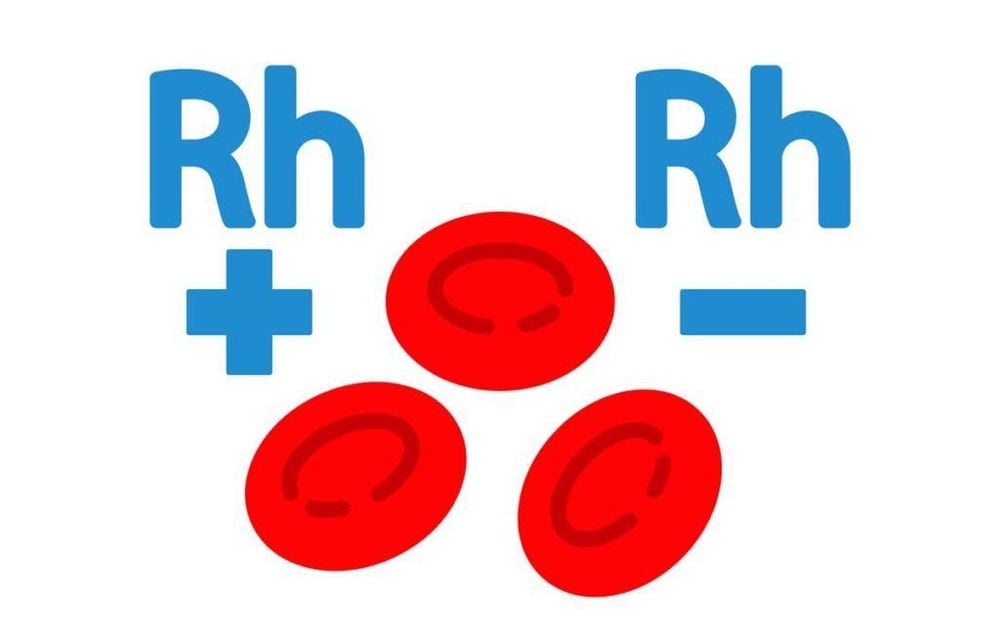
3. How to treat mother-child blood group incompatibility?
3.1 Treatment of mother and child's blood group incompatibility during pregnancy During pregnancy, when conducting a blood group determination test, if the mother has Rh(-) blood group and the child has Rh(+) blood group, the Mother will be prescribed 2 doses of Rh immune serum at 28 weeks of pregnancy and 72 hours after delivery.
The effect of serum dose is to help prevent and destroy the fetal Rh (+) red blood cells from entering the mother's blood, thereby preventing the mother's body from producing Rh antibodies. Thanks to this method, in subsequent pregnancies, the mother and child's blood group incompatibility will not cause dangerous problems.
3.2 Treatment of mother and child's blood group incompatibility at birth In a few cases, the mother was found to have Rh antibodies, the mother and child's blood group incompatibility at this time was dangerous to the fetus, now serum dose injection cannot be applied, instead, the mother will receive a blood transfusion to be able to nourish the fetus in the uterus. Or babies born with jaundice, hemolytic anemia will be treated with methods such as phototherapy or blood transfusion.
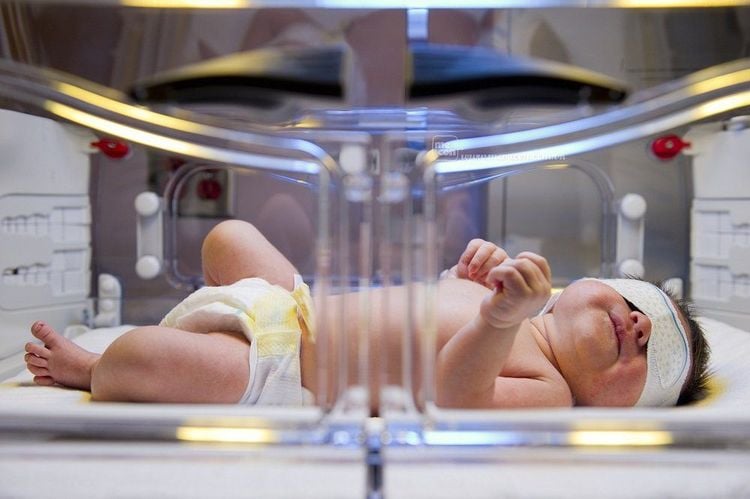
Mother-child blood group incompatibility can be dangerous, which is hemolytic anemia that causes jaundice in newborns. Therefore, the pregnant mother needs to have a blood group test to receive advice on health care for the mother and the fetus.
Aiming at accompanying pregnant mothers for a safe and convenient pregnancy, Vinmec International General Hospital provides a Package Maternity Program with outstanding quality in prenatal care, while childbirth as well as the postpartum - postpartum recovery process.
Please dial HOTLINE for more information or register for an appointment HERE. Download MyVinmec app to make appointments faster and to manage your bookings easily.






